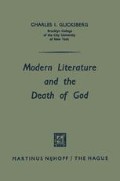Abstract
Difficult indeed is the struggle of the artist in poetry or prose to limn the picture of the other world, beyond the comprehension of sense and yet “real” and always present to him, even if he cannot give it a local habitation and a name. It is connected, this vision, with the dualism the Christian writer feels intensely: both worlds must be brought into a living relationship, for each world serves to influence the other. Otherworldliness that severs all ties with the human, the things of this earth, spells, as we have maintained, the death of art. A this-worldly approach that catches no hint of any ultimate meaning falls into the despair of silence that is Samuel Beckett’s characteristic note. For it is this tensely held awareness of the contrast between the ideal and the actual, the finite and the infinite, the religious insight and the behavioral fact, which makes for the tragic sense of life. Many of the major novelists of the nineteenth century — Dostoevski, Tolstoy, Melville, Hawthorne — beheld this numinous vision and believed in it, though they interpreted it in strikingly different ways. For them it was a genuine and vital, if mysterious and paradoxical, experience.
Access this chapter
Tax calculation will be finalised at checkout
Purchases are for personal use only
Preview
Unable to display preview. Download preview PDF.
References
James Agee, A Death in the Family. New York: Avon Books, 1964, p. 122.
Fyodor Dostoevski, The Possessed. Translated by Constance Garnett. New York: The Macmillan Company, 1916, p. 238.
Fyodor Dostoevski, The Idiot. Translated by Constance Garnett. New York: The Macmillan Company. 1913, p. 224.
Fyodor Dostoevski, The Possessed. Translated by Constance Garnett. New York: The Macmillan Company, 1916, p. 554.
Albert Camus, The Myth of Sisyphus. Translated by Justin O’Brien. New York: Vintage Books, 1955, p. 38.
Jean-Paul Sartre, Nausea. Translated by Lloyd Alexander. Norfolk, Conn.: New Directions, 1949, p. 171.
Edward Mannix, An End to Fury. New York: The Dial Press, 1958, p. 430.
Author information
Authors and Affiliations
Rights and permissions
Copyright information
© 1966 Martinus Nijhoff, The Hague, Netherlands
About this chapter
Cite this chapter
Glicksberg, C.I. (1966). The Numinous in Fiction. In: Modern Literature and the Death of God. Springer, Dordrecht. https://doi.org/10.1007/978-94-015-0770-7_7
Download citation
DOI: https://doi.org/10.1007/978-94-015-0770-7_7
Publisher Name: Springer, Dordrecht
Print ISBN: 978-94-015-0251-1
Online ISBN: 978-94-015-0770-7
eBook Packages: Springer Book Archive

